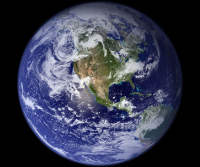
The wealth of AI is the rocket fuel of Moore’s Law.
The late, great Gordon Moore was an engineer, who saw his theory as a self-limiting phenomenon. In various editions of my book on the subject I have tried to explain how this constant, exponential improvement works outward, from processors, to everything silicon touches.
Like software.
Software is still mostly written by hand. In the 20th century productivity improved only in line with the tools used to write it. The 21st century brought Moore’s Law to software. Once software goes online, in a managed cloud, it’s instantly accessible to everyone. All the barriers created over a century to cordon off markets disappear. Some can be rebuilt, but at an enormous cost to efficiency.
Open source is a big part of this new Moore’s Law of Software. The more hands on the code, the faster the code improves. Software communities mean everyone is building, together, on a constantly rising platform. There’s no more reinventing the wheel.

AI software combines the power of the Internet and open source. It allows for the automation of code production. But it’s just a tool. While everyone is focused on things like ChatGPT, which make anyone a bad writer, AI is busy providing productivity to Amazon supply and delivery systems. It’s going to provide that value to every industry it touches, as people learn to deploy it.
AI is coming along just as I’m at retirement age and it’s essential to our kids’ future. Worries about it creating unemployment are overdone because poverty is a choice made by society. There’s plenty of value out there so most people can have a moderate degree of prosperity. Europe has proven this. The current bleating about “socialism” is just oligarchs’ excuse for not sharing.
There’s also no good reason not to share in an AI world. Even oligarchs will be forced to share by demographic trends. The supply of trained people is falling. The “baby boom echo” that became the Millennial generation turned into the baby bust known as Generation Z, and in the West that bust is accelerating. We’re not running out of people. The problem is most of them are black, brown, or Asian.

We may have fewer people writing bad screenplays, or in dead-end advertising jobs, but the value of creativity will increase, and there are many tasks in this world that will demand it. AI will raise the value of people needed to do all things. Everyone can get a raise thanks to the wealth of AI.









